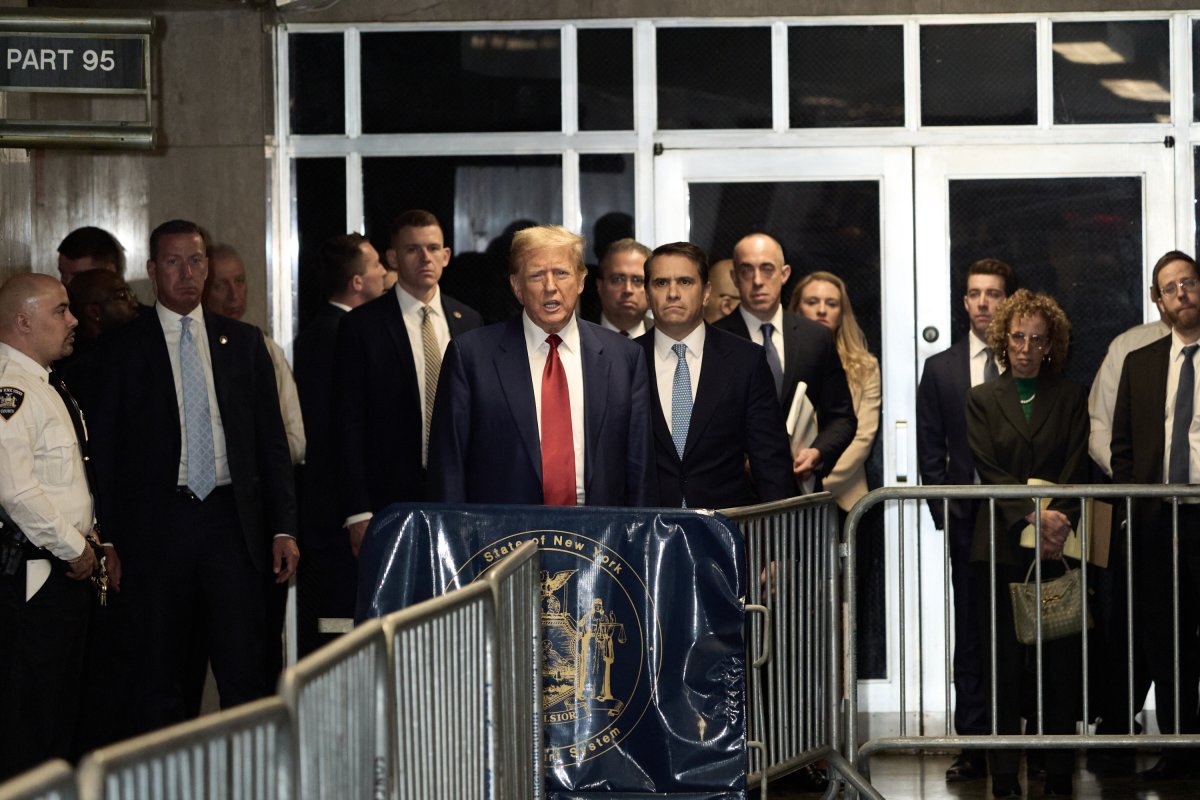"TRUMP TOWER REMAINS MINE!" former president and near-certain 2024 GOP candidate Donald J. Trump said in an email to supporters on Monday evening.
Earlier that day, a New York state appeals court moderated the heavy penalties imposed last month in a ruling by Manhattan Supreme Court Justice Arthur Engoron. The appeals court reduced a $454 million bond (including interest) payment due on Monday to $175 million, permitted Trump Organization executives—including Trump and his sons Donald Jr. and Eric—to conduct business in New York while the appeal proceeds, and allowed Trump and his real estate holding company to continue applying for loans from New York financial institutions. Trump was given 10 days to make the reduced payment and has to file his appeal by September. His businesses must operate in New York under a state business monitor and compliance officer.
Had the appeals court not intervened, Trump, who said he could not raise the $454 million by the Monday deadline, faced forfeiture of real estate properties in Manhattan and neighboring Westchester County. New York attorney general Letitia James, who campaigned on a promise to prosecute Trump, had said that she was prepared to proceed with the asset seizures.
While few people would see having to pay $175 million as a victory, from Trump's unique point of view it is a big one.
First, as Trump immediately acknowledged, he can and will pay the reduced amount, which is nearly two-thirds lower than the original. The larger figure appeared to be set deliberately beyond his—or anyone's—means to pay or finance, inviting an asset seizure that was almost certainly designed to humiliate him and cripple his finances as he seeks reelection to the presidency.
Whether deliberate or not, the facts of the original ruling—and their resemblance to suspicious financial judgments in banana republics where legal systems are often weaponized against political opponents—supported Trump's claims that the case constituted election interference. So, too, did the appeals court's decision to reduce the amount to a figure Trump could afford and to modify the remaining terms considerably in his favor. If the New York state appeals court—hardly a bastion of right-wing sentiment—smelled a rat in Engoron's ruling, a reasonable mind might conclude that there was one, and that there may well be equally pungent rats in future rulings.

Second, the extreme penalty was unprecedented under New York law, particularly in cases in which the alleged victims incurred no loss. Trump, who is accused of fraudulently overvaluing his assets to obtain more favorable borrowing terms, had his application properly vetted by his lenders and then repaid the loans in full and with interest. An Associated Press investigation conducted on the eve of Engoron's ruling found that, in similar cases, New York courts have dissolved only a dozen businesses since 1956. Unlike in Trump's case, all of them involved significant losses by defrauded victims, and all of the penalized businesses were actively engaged in fraudulent practices at the time of the ruling despite multiple warnings leading up to legal action. Even Bernard Madoff, who defrauded thousands of investors of billions of dollars in the biggest Ponzi scheme in history, and who spent the rest of his life in prison, initially only had to post a $10 million bond.
The unprecedented initial bond gives credence to Trump's claim that the civil cases against him, and his four ongoing criminal prosecutions, are politically motivated. Indeed, even the New York Times described the legal theory at work in his Manhattan criminal case as risky and untested.
Third, the irregularities of the cases against Trump leave significant doubt as to whether any of them will be decided before the November presidential election. The greater the prosecutorial overreach, the more possible grounds Trump has to blast the processes as politicized, challenge and thereby delay procedures in which judicial authorities are beginning to see significant violations, and generally bide his time before voters go to the polls. Should he win, he could pardon himself or, perhaps more plausibly, order the Justice Department to end his federal prosecutions while leaning on state authorities to dispose of the New York case, which is weak, and the equally preposterous case in Georgia, which has blown up together with the credibility of Fulton County DA Fani Willis.
Fourth, even if the government prosecutors succeed in getting a conviction or a damning final civil judgment before November, it is far from clear that it would make a significant difference in the campaign. Trump's persecution narrative would become a fulfilled prophecy backed by reams of favorable commentary and mountains of circumstantial and perhaps some clear and convincing evidence.
About half of Americans—including, according to a recent Politico/Ipsos poll, 45 percent of independents and even one in eight Democrats—either believe Trump is not guilty in the Manhattan case or have no opinion on the question. If Trump is convicted, recent polls suggest he would lose ground to Biden, but possibly not enough to lose reelection. With just over seven months to go, further extraordinary legal developments could also lead more voters to embrace Trump's narrative, worry about the precedents his prosecution might set, or develop some other form of lawfare fatigue that has the opposite effect than the intended one.
Much can still happen before election day, but if Trump should prevail he will have the vast judicial establishment to thank.
Paul du Quenoy is President of the Palm Beach Freedom Institute.
The views expressed in this article are the writer's own.
Uncommon Knowledge
Newsweek is committed to challenging conventional wisdom and finding connections in the search for common ground.
Newsweek is committed to challenging conventional wisdom and finding connections in the search for common ground.
About the writer
To read how Newsweek uses AI as a newsroom tool, Click here.








